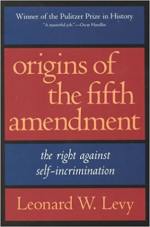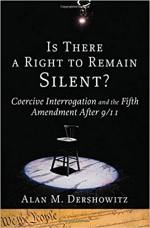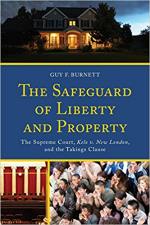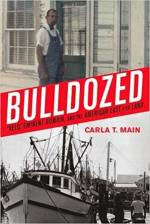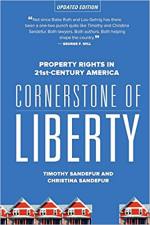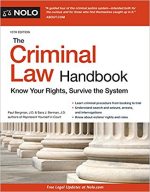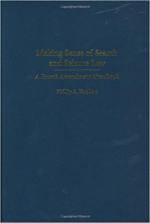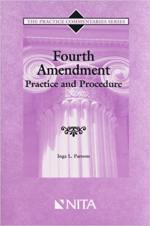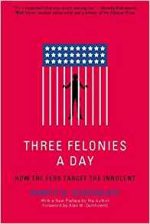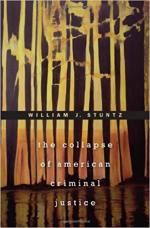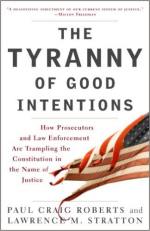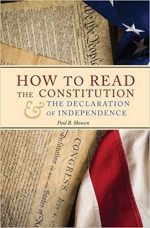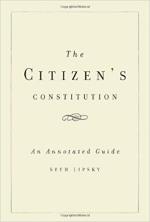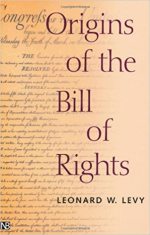The Constitution of the United States: Amendment 5 (Amendments 1-10 are known as the Bill Of Rights) (5th Amendment)
Amendment V. (Trial and Punishment, Compensation for Takings)
No person shall be held to answer for a capital, or otherwise infamous crime, unless on a presentment or indictment of a Grand Jury, except in cases arising in the land or naval forces, or in the Militia, when in actual service in time of War or public danger; nor shall any person be subject for the same offence to be twice put in jeopardy of life or limb; nor shall be compelled in any criminal case to be a witness against himself, nor be deprived of life, liberty, or property, without due process of law; nor shall private property be taken for public use, without just compensation.
;
Policing for Profit – The Abuse of Civil Asset Forfeiture
Rand Paul – Civil Asset Forfeiture
Don’t Talk to Cops, Part 2
5th Amendment (pt.1) – Michael Badnarik Bill of Rights Class
The Ninth Circuit’s rejection of Angel’s constitutional claim [Angel Raich in Gonzales v. Raich, 545 U.S. 1, 5 (2005)] shines a spotlight on a serious problem with the Supreme Court’s current approach to protecting liberty under the Due Process Clauses of the Fifth and Fourteenth Amendments. Ever since the New Deal, the Supreme Court has limited the protection afforded by the Due Process Clauses to what it calls “fundamental rights.” Unless the Court characterizes the liberty as “fundamental,” it will not evaluate or “scrutinize” the government’s claim that its restrictions on the liberty are truly necessary. With laws restricting mere “liberty interests” not deemed fundamental, the Court will blindly accept the government’s claim that its restriction is “reasonable.”
In short, a claimant challenging a statute needs a ticket into “Scrutiny Land” where the government must justify its restrictions on liberty. To get that ticket, a claimant must jump through the hoop of showing her liberty is fundamental. Otherwise, she automatically loses.
“Scrutiny Land,” by Randy E. Barnett, 106 Mich. L. Rev. 1479-1500 (2008) (23-page PDF![]() )
)
Watch California Cops Steal Every Penny from an Innocent Family
More
- The Constitution of the United States: Amendments 1-10 are known as the Bill Of Rights, from The National Archives
- Fifth Amendment – Wikipedia
- Fifth Amendment – Findlaw
- See 10 Rules for Dealing with Police
- See Civil Asset Forfeiture – “Policing for Profit”
- The Constitution of the United States: A Transcription – The National Archives
- United States Constitution: Texts, Commentaries, Historical Texts and Judicial Decisions – Law Library of Congress
- The Constitution of the United States of America: Analysis and Interpretation – FDsys
- Constitution of the United States of America: Analysis and Interpretation, Govinfo.gov
- “Crime and Forfeiture,” CRS Report 97-139 (110-page PDF
 )
) - “Contesting the Seizure of Vehicles Under Civil Forfeiture: What Process Is Due?” CRS Legal Sidebar LSB10581 (7-page PDF
 )
) - “Ending Civil Asset Forfeiture Should Be a Bipartisan Project,” by Steven Greenhut, Reason, April 2, 2021
5th Amendment (pt.2) – Michael Badnarik Bill of Rights Class
- “Federalism and the Constitution: Limits on Congressional Power,” CRS Report RL30315 (31-page PDF
 )
) - Bill of Rights Card, from Two Seas Media
- “International Conflict and Property Rights: Fifth Amendment ‘Takings’ Issues,” CRS Report RS21040 (8-page PDF
 )
) - “United States Sentencing Guidelines and the Supreme Court,” CRS Report RL32573 (33-page PDF
 )
) - “Victims’ Rights Amendment in the 106th Congress,” CRS Report 97-736 (8-page PDF
 )
) - “Federal Grand Juries: The Law in a Nutshell,” CRS Report RS20214 (10-page PDF
 )
) - “Administrative Subpoenas in Criminal Investigations: A Brief Legal Analysis,” CRS Report RL33321 (35-page PDF
 )
) - Amendment 5 – Heritage Guide to the Constitution
Rep. Justin Amash – Floor speech on Smith-Amash Amendment/National Defense Authorization Act (NDAA)
- “Capital Punishment: An Overview of Federal Death Penalty Statutes,” CRS Report RL30962 (25-page PDF
 )
) - “Privacy: An Abbreviated Outline of Federal Statutes Governing Wiretapping and Electronic Eavesdropping,” CRS Report 98-327 (21-page PDF
 )
) - “Delegation of the Federal Power of Eminent Domain to Nonfederal Entities,” CRS Report RS22884 (8-page PDF
 )
) - “The Endangered Species Act and Claims of Property Rights ‘Takings’,” CRS Report RL31796 (28-page PDF
 )
) - “Wetlands Regulation and the Law of Property Rights ‘Takings’,” CRS Report RL30423 (55-page PDF
 )
) - “DNA Testing in Criminal Justice: Background, Current Law, Grants, and Issues,” CRS Report R41800 (21-page PDF
 )
) - “Perjury Under Federal Law: A Brief Overview,” CRS Report 98-808 (21-page PDF
 )
) - CRS Annotated Constitution
- Meta-EE and the Constitution Part 4: Fifth Amendment
- The Privilege To Shut Up – Popehat, January 14, 2014
“You Have the Right to Remain Innocent” (James Duane)
- Grand Jury Requirement – Heritage Guide to the Constitution
- Grand Jury Exception – Heritage Guide to the Constitution
- Double Jeopardy – Heritage Guide to the Constitution
- Self-Incrimination – Heritage Guide to the Constitution
- Due Process Clause – Heritage Guide to the Constitution
- Takings Clause – Heritage Guide to the Constitution
- “Civil Asset Forfeiture: Good Intentions Gone Awry and the Need for Reform,” by John Malcolm, Heritage, April 20, 2015
- “Policing for Profit – Institute for Justice,” (186-page PDF
 )
)

A free download of our Pocket Constitution is available on Scribd.
Our Pocket Constitution: details on our web site.
Origins of the Fifth Amendment: The Right Against Self-Incrimination
Is There a Right to Remain Silent? Coercive Interrogation and the Fifth Amendment After 9/11
The Safeguard of Liberty and Property: The Supreme Court, Kelo v. New London, and the Takings Clause
Bulldozed: ‘Kelo,’ Eminent Domain and the American Lust for Land
Little Pink House: A True Story of Defiance and Courage
The Grasping Hand: Kelo v. City of New London and the Limits of Eminent Domain
Cornerstone of Liberty: Property Rights in 21st Century America
Double Jeopardy (DVD)
Never Get Busted Again 1: Traffic Stops (DVD)
Criminal Law Handbook, The: Know Your Rights, Survive the System
Arrest-Proof Yourself
You Have the Right to Remain Innocent
Making Sense Of Search And Seizure Law: A Fourth Amendment Handbook
The Fourth Amendment in an Age of Surveillance
Search & Seizure Survival Guide 2017: A Field Guide for Law Enforcement
Fourth Amendment Practice And Procedure
Three Felonies A Day: How the Feds Target the Innocent
The Collapse of American Criminal Justice
The New Jim Crow: Mass Incarceration in the Age of Colorblindness
The Tyranny of Good Intentions: How Prosecutors and Law Enforcement Are Trampling the Constitution in the Name of Justice
The Bill of Rights: Creation and Reconstruction
How to Read the Constitution and the Declaration of Independence: A Simple Guide to Understanding the Constitution of the United States
The Citizen’s Constitution: An Annotated Guide
The Bill of Rights: Original Meaning and Current Understanding
Origins of the Bill of Rights
The Bill of Rights in Modern America: Revised and Expanded
James Madison and the Struggle for the Bill of Rights
George Mason, Forgotten Founder
For more than 40 years, TheCapitol.Net and its predecessor, Congressional Quarterly Executive Conferences, have been teaching professionals from government, military, business, and NGOs about the dynamics and operations of the legislative and executive branches and how to work with them.
Our custom on-site and online training, publications, and audio courses include congressional operations, legislative and budget process, communication and advocacy, media and public relations, testifying before Congress, research skills, legislative drafting, critical thinking and writing, and more.
TheCapitol.Net is on the GSA Schedule, MAS, for custom on-site and online training. GSA Contract GS02F0192X
TheCapitol.Net is now owned by the Sunwater Institute.
Teaching how Washington and Congress work ™

